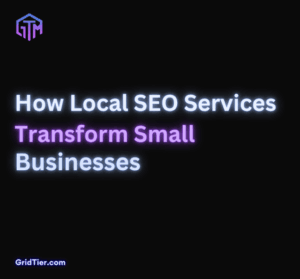
Unlock SEO Content Writing Strategies for Websites
In today’s digital landscape, content is king—but not just any content will do. To truly excel online, businesses need to combine great content with effective SEO strategies. Whether you’re a startup or a well-established brand, optimizing your website’s content for search engines can make all the difference in reaching your target audience. Here’s a guide on how to unlock powerful SEO content writing strategies for your website and boost your online visibility.
The Importance of SEO Content for Websites
Search engine optimization (SEO) isn’t just about keywords—it’s about crafting content that provides value to your audience while ensuring that search engines understand and rank it appropriately. The combination of content marketing and SEO can help your business rank higher in search engine results pages (SERPs), attract organic traffic, and increase conversions. Content that’s optimized for search engines helps you stand out in a crowded market and allows you to communicate more effectively with your target market.
Keyword Research: The Foundation of SEO Content Writing
Effective keyword research is the backbone of any SEO content strategy. Identifying the right target keywords allows you to optimize your content in a way that resonates with your audience and search engines. Using tools like Google Analytics, Semrush, and Google Trends, you can find keywords that are relevant to your business, ensuring you target the right search queries.
When implementing your keywords, be strategic. Focus on long-tail keywords, which are highly relevant and more likely to convert, and incorporate them naturally into your content. Avoid keyword stuffing, as it can harm readability and user experience. Proper keyword placement in titles, meta descriptions, and throughout your text will boost your ranking on search engines while improving the experience for your audience.
Content Strategy and Quality: The Key to Engaging Your Audience
To ensure that your content is not only SEO-friendly but also valuable, your content strategy should include elements like user intent, engagement, and quality. Great content speaks to your audience’s needs and provides answers to their questions. This is where content creation, storytelling, and creative strategies come into play.
Content marketers should use clear, concise language, optimize readability, and create content that delivers on user intent. Focus on providing helpful, informative, and engaging material that resonates with the target audience. Including multimedia like infographics, videos, or interactive media can significantly improve user experience and keep visitors on your site longer—reducing your bounce rate.
Link Building and Backlink Strategies for Enhanced Visibility
A key component of SEO content writing is building backlinks, which act as endorsements from other websites. Quality backlinks signal to search engines that your website is trustworthy and authoritative. These links can come from blog posts, social media profiles, or guest posts on reputable websites. Incorporating link-building strategies within your content marketing efforts will significantly improve your content’s visibility and search engine rankings.
Internal Linking: A Smart Strategy for Better Navigation
While external backlinks are important, internal linking within your website is equally crucial for SEO. Creating a robust internal linking structure allows search engines to crawl and index your website more effectively. Plus, it provides a better experience for your users by guiding them to additional valuable content.
Content Optimization: Going Beyond Basic SEO
Optimizing your content doesn’t stop with keyword research. To truly excel, your content needs to be optimized for both search engines and your audience. This includes enhancing readability, using proper metadata (like alt tags and image descriptions), and ensuring that each page on your site has relevant, well-optimized content. Implementing SEO best practices like Yoast SEO for WordPress or using proper HTML formatting can significantly improve your content’s performance on search engines.
User Experience (UX): Integrating SEO With Web Design
User experience (UX) and web design are critical elements of SEO content strategy. A well-designed website with clear navigation, mobile optimization, and fast loading times will keep your visitors engaged, improve page views, and reduce bounce rates. Your content should be easily accessible and fit seamlessly into your site’s layout to create an enjoyable experience for your audience.
Additionally, consider the visual aspects of your content. Using high-quality images and optimizing them for speed (by using compressed file formats) can enhance both the user experience and your site’s SEO.
Analytics and Performance Tracking: Measure and Improve
One of the most effective ways to optimize your content is by regularly analyzing its performance. Google Analytics provides insights into user behavior, helping you understand which content is working and which isn’t. By measuring key performance indicators (KPIs) like traffic, time on page, and conversions, you can continuously improve your content and SEO strategy.
Using tools like Semrush for competitor analysis also allows you to stay ahead of your competition by identifying opportunities to rank higher in the search results.

Final Thoughts: Unlock Your Website’s Potential With SEO Content
Effective SEO content writing is more than just optimizing for search engines—it’s about providing value to your audience, engaging them, and encouraging them to take action. By using the right keywords, crafting a content strategy that resonates with your target market, and consistently optimizing your content, your website can achieve long-term SEO success.
At GridTier, we specialize in crafting SEO content strategies that help businesses rank higher, attract more visitors, and convert them into customers. Ready to unlock the full potential of your website’s content? Contact us today to start your SEO content strategy journey!


